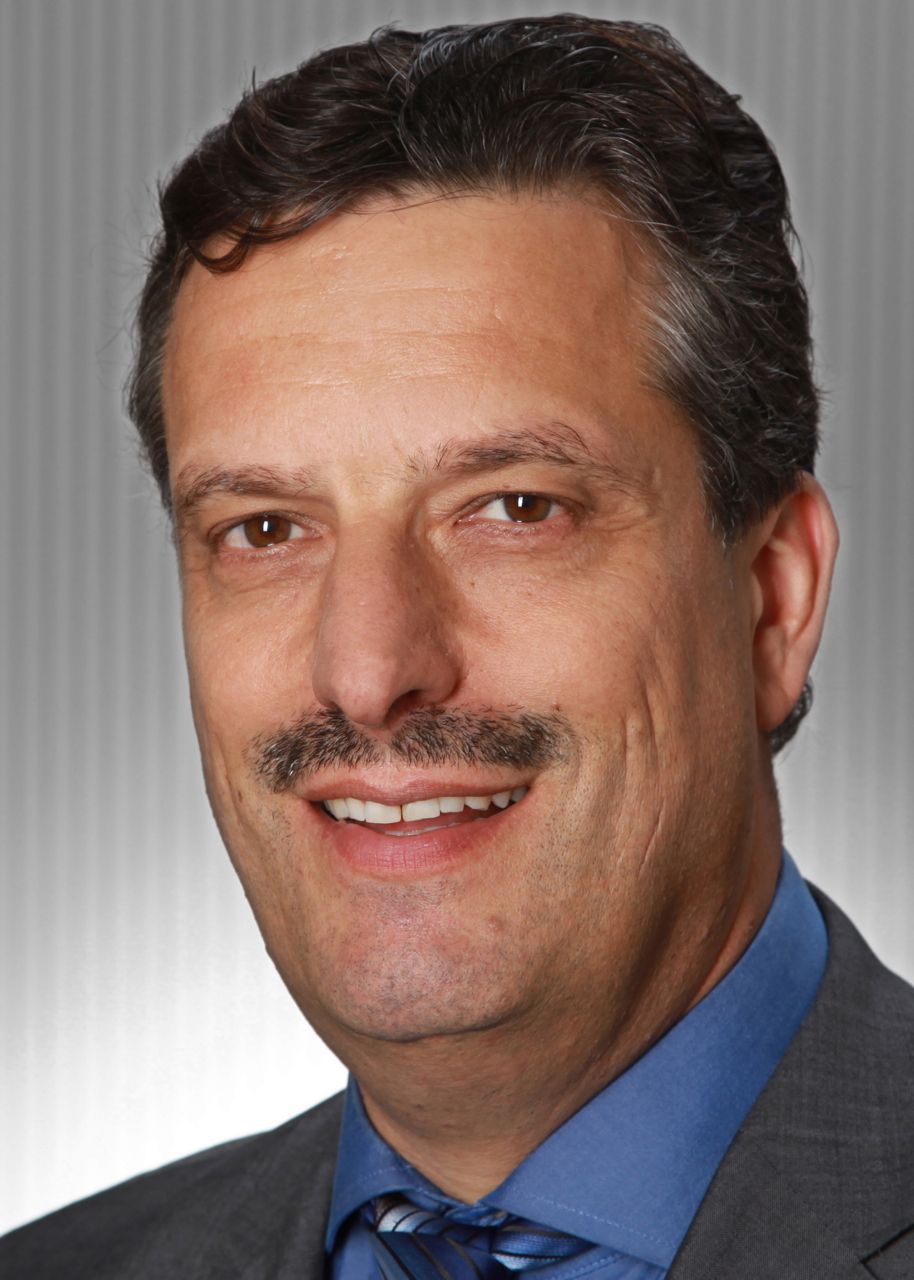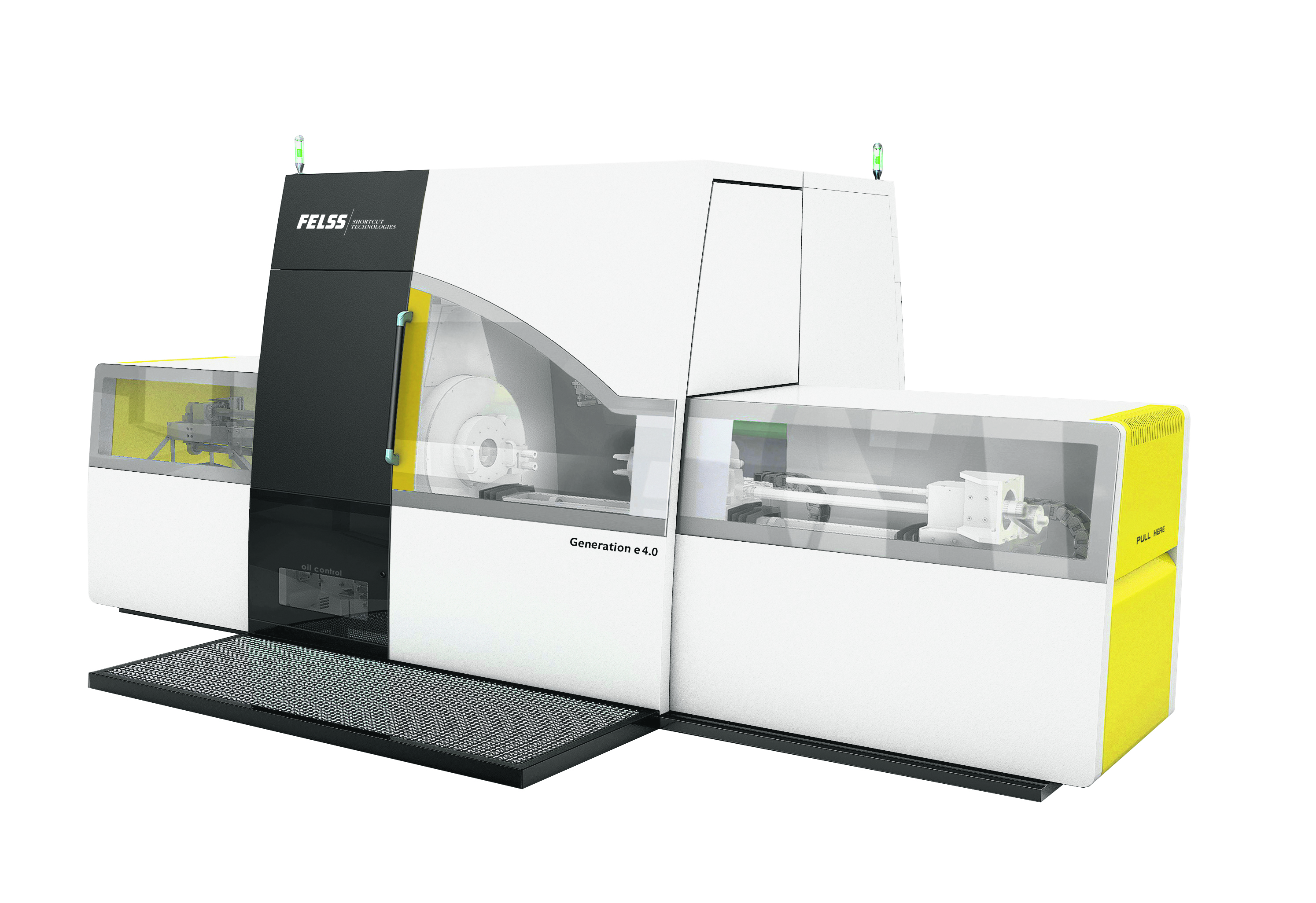
Wolfgang Kienle, Product manager at Zeller+Gmelin: "Our multipress lubricants are finely tuned to the rotary swaging and available for an enormous range of materials."
Lubricant Specialist Zeller+Gmelin has developed lubricants in close cooperation with leading manufacturers of rotary swaging machines, which meet even the most exacting requirements and are specially adapted to this process. Multipress lubricants are available in different viscosities for a wide range of materials: either as the universal lubricant Multipress RK 20 or RK 15 for all types of steel.
Rotary swaging is a free form process for reducing the cross-section on metal rods and pipes with two or more tool segments which completely or partially surround the cross-section, simultaneously act radially and rotate relative to the workpiece. The rotary swaging process thus offers practically all the advantages of cold forming with favourable fibre orientation, smooth surfaces, tight tolerances, considerable material savings and, in addition, often the potential for considerable weight reductions due to the optimized workpiece geometry.
"In addition to axial forming and the newly developed tangential shapes, the rotary swaging process is regarded as a proven method of cold forming", explains Wolfgang Kienle, product manager at Zeller+Gmelin."Especially with the use of pipes, it offers fascinating shaping possibilities such as steep transitions, high degrees of forming, high flexibility with regard to changing geometries, punctures in the pipe range and non-circular cross-sections."
Swag steering parts in a process-reliable manner
In modern rotary swag transfer systems, the increasing demands of the automotive industry for light-weight components, a shortening of the process chains by near-net-shape production and resources of gentle production are implemented and already included in developments in the field of vehicle technology. The field of application for rotary swaging is broadly diversified in the automotive sector, so that the cold forming process can be used economically. Examples include components from the areas of steering, engine, powertrain and chassis, as well as applications that enhance occupant safety. In order to extract an application example, passenger car steering parts are mentioned. "The demands on these components are very high, since they cannot fail as safety components under any circumstances. In order to reliably produce such parts, this high-tech and sophisticated production process requires good coordination between the machine, the tool and the materials and not least the lubri
cants used, "emphasizes Wolfgang Kienle. Together with round machine manufacturers, Zeller+Gmelin has therefore developed the Multipress RK 20 and RK 15 lubricants. These are specially designed for this process, provide optimum corrosion protection for machine and workpiece and ensure extended tool life by reducing tool wear.
Lubricant affects quality
Since the desired forming is not carried out in one working stroke, but in several individual steps (the stroke frequency is between 1500 and 6000 strokes per minute depending on the machine size), the heat of deformation resulting from this process must be dissipated, which is a main task of the lubricant. High dimensional accuracy and compliance with tight tolerances in mass production are further requirements which are imposed on the lubricant. Last but not least, an optimum surface quality and a low surface roughness are required. This is achieved by the optimum coordination between machine, tool and lubricant.
The two mineral oil-based lubricants with a suitable additive component and a viscosity of 20 mm²/s or 15 mm²/s at 40°C is recommended by leading manufacturers of rotary swaging machines are suitable for all types of steel. For the machining of aluminium, the lubricant manufacturer Zeller+Gmelin Multipress AL 40 recommends a fully synthetic special lubricant with a viscosity of 40 mm²/s at 40°C, which has proved to be a good choice for the rotary swaging of aluminium and non-ferrous metal.
In the automobile industry, external toothed gears are often used for components which have to transmit a torque. This applies to shafts in the powertrain, steering, transmission, electric motor shafts and many other applications. Recently, for reasons of weight reduction, hollow shafts are being used increasingly. This is particularly challenging in the case of hollow shafts. Very good tooth gear qualities are to be achieved in a process-reliable manner, without the wall thickness having to be reinforced. These requirements are achieved through the axial forms. It is used for the pressing of different tooth shapes. In contrast to milling, the tooth gears are pressed onto pipes or lines by axial forces. This not only results in highly precise tooth gear elements, but also increases the strength of the material. "In combination with the rotary swaging pro- cess, the automotive industry particularly benefits from light and high-strength shafts made of pipes," says the product manager.
The lubricant manufacturer Zeller+Gmelin has also developed two special lubricants, which are suitable for high or the highest requirements in the case of gear presses. Multipress SSP 70 with a viscosity of 70 for stainless steels, steels and conditionally for aluminium and Multipress CF 4 for stainless steels, steels, aluminium and conditionally for non-ferrous metals.

Rotary swaging machine of the e4.0 generation by Felss with electric axes. The machine offers up to 60 percent energy savings with increased performance and greater flexibility. (Image source: Felss holding GmbH)















